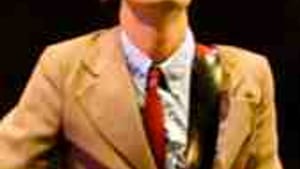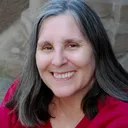Stay in the Loop
BSR publishes on a weekly schedule, with an email newsletter every Wednesday and Thursday morning. There’s no paywall, and subscribing is always free.
Love me, love my sound equipment
Andrew Bird in Wilmington

Andrew Bird is a singer-songwriter-violinist whose quirky sensibility makes him, musically, the love child of David Byrne and Laurie Anderson. He often performs solo, using looping, sampling and distortion to create richly layered combinations of sounds: violin (which Bird plays both by bowing and by plucking it like a ukulele), guitar, xylophone and voice (singing and whistling — yes, whistling, with amazing power and control).
Bird's reliance on technology led me to meditate, during his performance on Saturday, on the nature of live music, and what makes it qualitatively different from recorded music. If part of what I'm listening to is recorded (whether previously or on the spot), is that music fully "live"? What exactly do I hope to experience when I attend a "live" performance?
It seems to me that there are two main types of live music: concerts where you know in advance what you're going to hear, perhaps note by note— Classical music, say, or top 40 acts like Lady Gaga or Justin Bieber— and those where you don't: improvisational genres like blues, jazz and rock. I strongly prefer concerts of the second type.
'Cabaret style'
That preference, it turns out, isn't just about the virtuosity of the performers I love but about vicariously participating in their act of creation by being present at the moment of creation. This was the experience that Bird— a classically trained violinist, so no slouch himself when it comes to virtuosity — provided so fully in this concert.
"I'm going to play this next song cabaret style," he told the audience at one point. "The version on the album is a mid-tempo rocker, but playing it that way would just be a chore."
With those words, Bird expressed what it is that I don't want in a musical performance: a song as a chore, a job; a version that merely repeats identical versions. I want to be there as the performer engages with the music, rediscovers it for himself or herself, and allows us to rediscover it as well.
Technical failure
The opening act was percussionist-keyboardist Martin Dosh (whose full name, according to Wikipedia, is Martin Luther King Chavez Dosh— he was born in 1972, you see), who also accompanied Bird for part of the second half. The two often collaborate, making similar use of recorded looping and sampling. One number they did Bird described, in advance, as a "mess," explaining that each night of their two-week mini-tour (of which this was the last night), they had improvised a song completely from scratch, recording the results.
On this night, the technology aborted— Bird's loop, which was supposed to play through Dosh's system, failed to do so— but the results were interesting nonetheless. Besides, that itself is part of the experience of creation: Sometimes it happens, and sometimes it doesn't— whether due to lack of inspiration or a failure of the tools of creation.
Bird's reliance on technology led me to meditate, during his performance on Saturday, on the nature of live music, and what makes it qualitatively different from recorded music. If part of what I'm listening to is recorded (whether previously or on the spot), is that music fully "live"? What exactly do I hope to experience when I attend a "live" performance?
It seems to me that there are two main types of live music: concerts where you know in advance what you're going to hear, perhaps note by note— Classical music, say, or top 40 acts like Lady Gaga or Justin Bieber— and those where you don't: improvisational genres like blues, jazz and rock. I strongly prefer concerts of the second type.
'Cabaret style'
That preference, it turns out, isn't just about the virtuosity of the performers I love but about vicariously participating in their act of creation by being present at the moment of creation. This was the experience that Bird— a classically trained violinist, so no slouch himself when it comes to virtuosity — provided so fully in this concert.
"I'm going to play this next song cabaret style," he told the audience at one point. "The version on the album is a mid-tempo rocker, but playing it that way would just be a chore."
With those words, Bird expressed what it is that I don't want in a musical performance: a song as a chore, a job; a version that merely repeats identical versions. I want to be there as the performer engages with the music, rediscovers it for himself or herself, and allows us to rediscover it as well.
Technical failure
The opening act was percussionist-keyboardist Martin Dosh (whose full name, according to Wikipedia, is Martin Luther King Chavez Dosh— he was born in 1972, you see), who also accompanied Bird for part of the second half. The two often collaborate, making similar use of recorded looping and sampling. One number they did Bird described, in advance, as a "mess," explaining that each night of their two-week mini-tour (of which this was the last night), they had improvised a song completely from scratch, recording the results.
On this night, the technology aborted— Bird's loop, which was supposed to play through Dosh's system, failed to do so— but the results were interesting nonetheless. Besides, that itself is part of the experience of creation: Sometimes it happens, and sometimes it doesn't— whether due to lack of inspiration or a failure of the tools of creation.
What, When, Where
Andrew Bird with Martin Dosh. October 22, 2011 at the Grand Opera House, 818 N. Market St., Wilmington, Del. (302) 652-5577 or thegrandwilmington.org.
Sign up for our newsletter
All of the week's new articles, all in one place. Sign up for the free weekly BSR newsletters, and don't miss a conversation.

 Judy Weightman
Judy Weightman